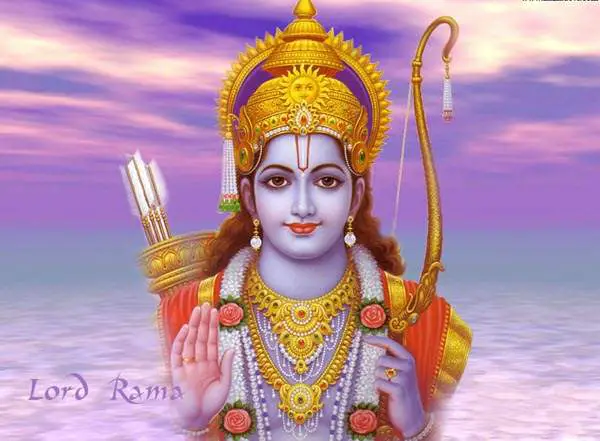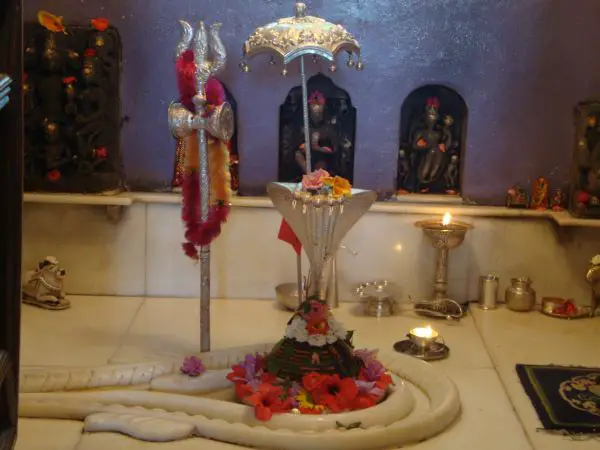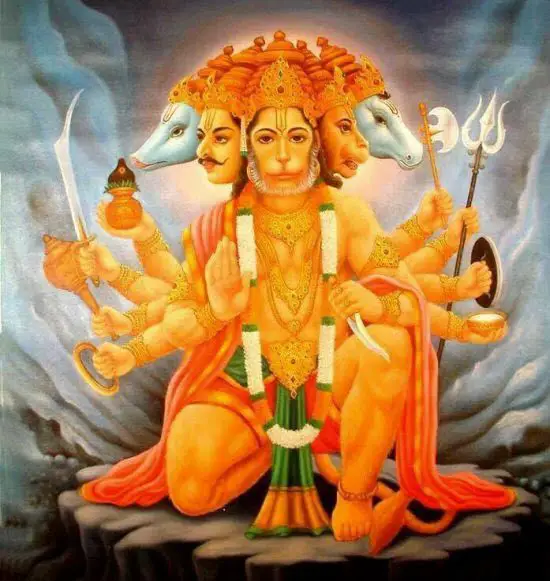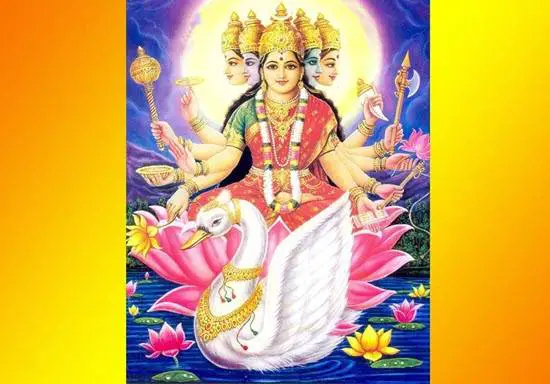Lord Dhanvantari is regarded as an incarnation (avatar) of Lord Vishnu. He is the Hindu god of medicine. He has been called the Father of Ayurveda.
Hindus pray to him to get blessings for sound health. He is worshipped on Dhanteras or Dhanvantari Trayodashi.
The Government of India has declared that Dhanvantari Trayodashi will be celebrated as “National Ayurveda Day.”
In this post, you will come to know about Lord Dhanvantari and Dhanvantari Mantra.
Table of Contents
Who is Bhagwan Dhanvantari?
Bhagwan Dhanvantari is regarded as the physician of the Gods. He possesses excellent knowledge of various medicinal plants. He is the originator of Ayurveda. He is considered the incarnation of Lord Vishnu in Hinduism. Vedas regard him as an oasis in the desert of worldly existence.
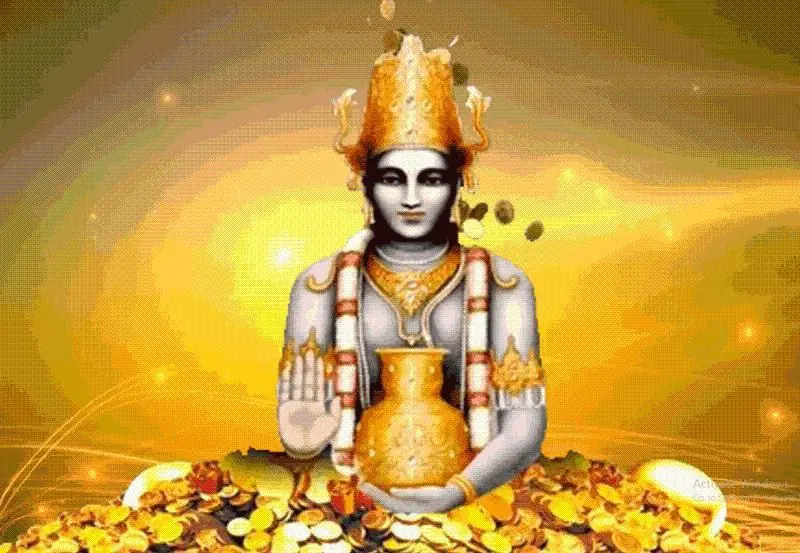
Lord Dhanvantari compiled the ancient science of medicine (Ayurveda) in the form of:
- Shalya Shastra
- Shalakya Shastra
- Kayachikitsa
- Bhutavidya
- Rasayana Tantra
- Kaumarabhrtya
- Vajikarana Tantra
- Agada Tantra
According to the Hindu scriptures, Lord Indra deputed Bhagwan Dhanvantari to take the science of Ayurveda to the mortals.
Lord Dhanvantari arose during the “Samudra Manthan” from the Ocean of Milk. Carrying the nectar with himself of immortality (Amrita) when the ocean was being churned by the Devas and Asuras, using the serpent Vasuki and the Mandara Mountains.
This pot of Amrita was snatched by the Asuras and was taken back by Mohini (an avatar of Lord Vishnu).
Hindus believe that the science of Ayurveda is eternal. Lord Vishnu incarnates in the form of Dhanvantari to establish the tradition of Ayurveda in the world to relieve humanity’s sufferings.
So, Lord Dhanvantari is known as the Father of Ayurveda. He is the one who imparted the wisdom of Ayurveda to humans.
Lord Dhanvantari has been portrayed as young and strongly built. His chest is vast, and his complexion bluish-black. He had muscular arms; his eyes were reddish in color, and he was clad in bright yellow.
He wore shining earrings which are made of pearl. His curly hair had been anointed with oil; he is usually depicted with four hands. He holds a pot of Amrita in one of his hands. He also holds a conch, healing herbs, and a chakra (divine weapon of Lord Vishnu).
Asuras snatched the pot of Amrita when he appeared during the Samudra Manthan from the Ocean of Milk. They started quarreling as to who would drink the nectar first.
Lord Vishnu took the form of a beautiful woman (Mohini) and tricked them into recovering the nectar from them.
This nectar was distributed amongst the demigods. When the demigods (Devtas) drank the nectar, they were filled with divine energy and defeated the demons.
Lord Dhanvantari descended into the material world and taught Ayurveda to the human race. It is said that one who remembers the name of “Dhanvantari” is released of all diseases. Lord Dhanvantari is worshipped all over India as the God of Medicine.
Lord Indra pleaded with Bhagwan Dhanvantari to descend into this material world and teach Ayurveda to humankind. Lord Dhanvantari taught Ayurveda to the Rishis and Sages, who became his disciples.
Here, we share with you one of the slokas devoted to the origin of Lord Dhanvantari:
ॐ शंखं चक्रं जलौकां दधदमृतघटं चारुदोर्भिश्चतुर्मिः।
सूक्ष्मस्वच्छातिहृद्यांशुक परिविलसन्मौलिमंभोजनेत्रम॥
Why is Lord Dhanvantari worshiped on Dhanteras?
Dhanteras, which marks the onset of Diwali celebrations in India, is also known as Dhanvantari Trayodashi.
Lord Dhanvantari’s birth anniversary is celebrated on Dhanteras or Dhanvantari Trayodashi. Lord Dhanvantari is the teacher and father of Ayurveda in India.
So, in India, Lord Dhanvantari is worshiped on Dhanteras. People pray to Lord Dhanvantari for good health and physique. His birthday is largely celebrated by the practitioners of Ayurveda on Dhanteras (every year), two days before Diwali.
The Government of India has declared this day National Ayurveda Day.
Lord Dhanvantari emerged during the Samudra Manthan, holding a pot of Amrita and the sacred text of Ayurveda. This episode has been narrated in the Bhagavata Purana and the Vishnu Purana. He is regarded as the Vaidya of the Demigods.
Dhanvantari Mantra
Here we have included some of the most popular Dhanvantari Mantras that will help remove all fears and diseases and promote happiness and prosperity.
These mantras have the power to improve vitality and energy levels in humans. They promote a natural state of well-being. These mantras work on your body, mind, and soul, thereby giving you a healing touch.
The more you chant these mantras, the more their positive and healing effects will be. Diseases of all kinds (physical and mental) can be cured by chanting the following mantras.
The best time to chant these mantras is before and during sunrise. You should take a bath and wear fresh clothes. You should use lotus beads or a crystal rosary to keep the mantra count.
You should chant your chosen Dhanvantari Mantra in multiples of 108. You can increase the count as the days go by. You should donate medicines and food (to the needy and low) to enhance the mantra chanting power.
So, here are the most popular and powerful Dhanvantari Mantras for you:
- ॐ धन्वंतराये नमः॥
- ॐ नमो भगवते महासुदर्शनाय वासुदेवाय धन्वंतराये:
अमृतकलश हस्ताय सर्वभय विनाशाय सर्वरोगनिवारणाय
त्रिलोकपथाय त्रिलोकनाथाय श्री महाविष्णुस्वरूप
श्री धन्वंतरी स्वरूप श्री श्री श्री औषधचक्र नारायणाय नमः॥
- ॐ नमो भगवते वासुदेवाय धन्वंतरये
अमृतकलश हस्ताय सर्वामयविनाशनाय
त्रिलोक्यनाथाय श्री महाविष्णवे नमः ||
Om Namo Bhagavate Vasudevaya Dhanvantaraye
Amrutha-Kalasa-Hasthaaya Sarvaamaya-Vinaashanaaya
Tri-Lokya-Naathaaya Shri Mahaavishnave Namaha ||
- Dhanvantari Gayatri Mantra
“Om Tat Purushaaya Vidmahe Amrita Kalasa Hastaaya Dheemahi Tanno Dhanvantari Prachodayaat.”
- Popular Mantra of Lord Dhanvantari
“Namani Dhanwanthary Aadi Devam, Surasura Vanditham Pada Padmam, Loke Jara Rugbhay Mrityu Nashakam, Datharam Eesham Vividhaushadhinam”
So, that’s all in this post on Lord Dhanvantari and Dhanvantari Mantra. We hope that you would have found the post useful. Thanks for reading. Lastly, please share the post across popular social networking sites.

